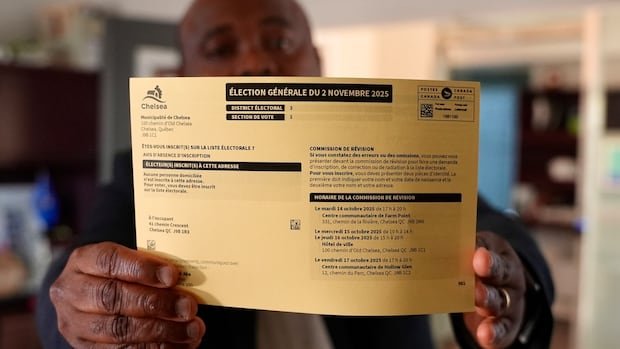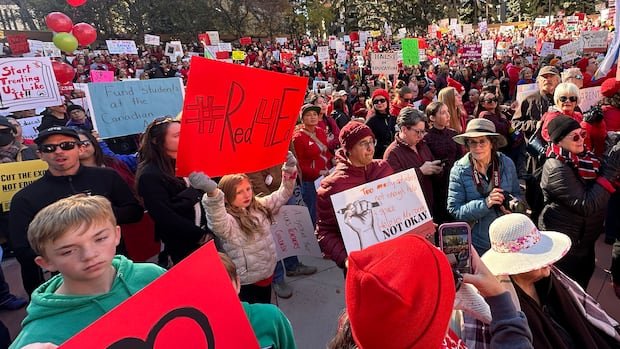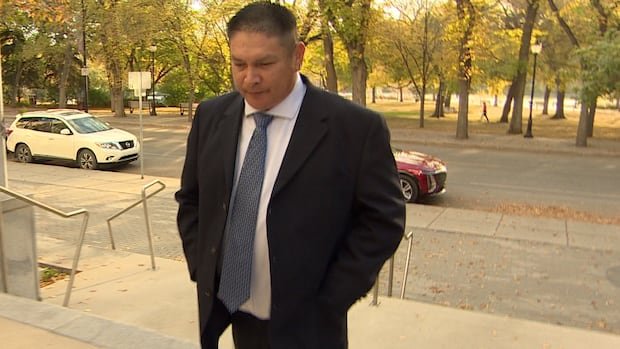Mail has started moving slowly this week as the Canadian Union of Postal Workers (CUPW) shifts to rotating strikes, but it’s already too late for Canada Post to deliver voter cards and mail-in ballots for upcoming elections across the country.
Provinces, territories and municipalities have been quick to get election details and documents to residents through other means.
But some experts say that despite those efforts, the disruption could still lead to fewer people voting, since voter registration cards provide essential information during elections for which the rules may be different and turnout already tends to be low.
The national postal strike was partParticularly disruptive for the delivery of voter registration cards in Quebec, where most voters had to ensure they were registered this week to vote in the Nov. 2 municipal elections.
Concerned about the impact on voter participation, the Communauté métropolitaine de Montréal (CMM), which represents the city of Montreal and surrounding municipalities, is calling for all election documents to be considered “essential mail.”
That way, voter information and mail-in ballots will not be held up in the mail during future Canada Post labor disputes.
Most elections in Canada allow voters to register on Election Day at the correct polling station with proper identification. This is not the case with provincial and municipal elections in Quebec.
In Quebec, residents must make sure their name, address and other details are correct on the voter list weeks before casting their vote, information they would normally verify by looking at the voter card they received in the mail.
The shift to rolling strikes has caused some Canadian mail to be delivered, but in multiple elections across the country officials are looking for alternative ways to deliver voter cards and mail-in ballots.
To try to distribute as many cards as possible before this week’s deadline, Elections Quebec allowed municipalities to hand out the information as they saw fit, suggesting they even use volunteer groups like Scouts or junior hockey teams to help.
Some municipalities paid out of pocket for last-minute delivery through private companies.
“It’s been a lot of gymnastics,” said Me Charles-Hervé Aka, returning officer for the municipality of Chelsea in western Quebec, who paid a private courier to personally deliver the registration cards.
Aka said a small community like his doesn’t have the same resources that a larger city might have to spread information about voters.
“It’s a challenge, but we try to do the best we can,” he said.
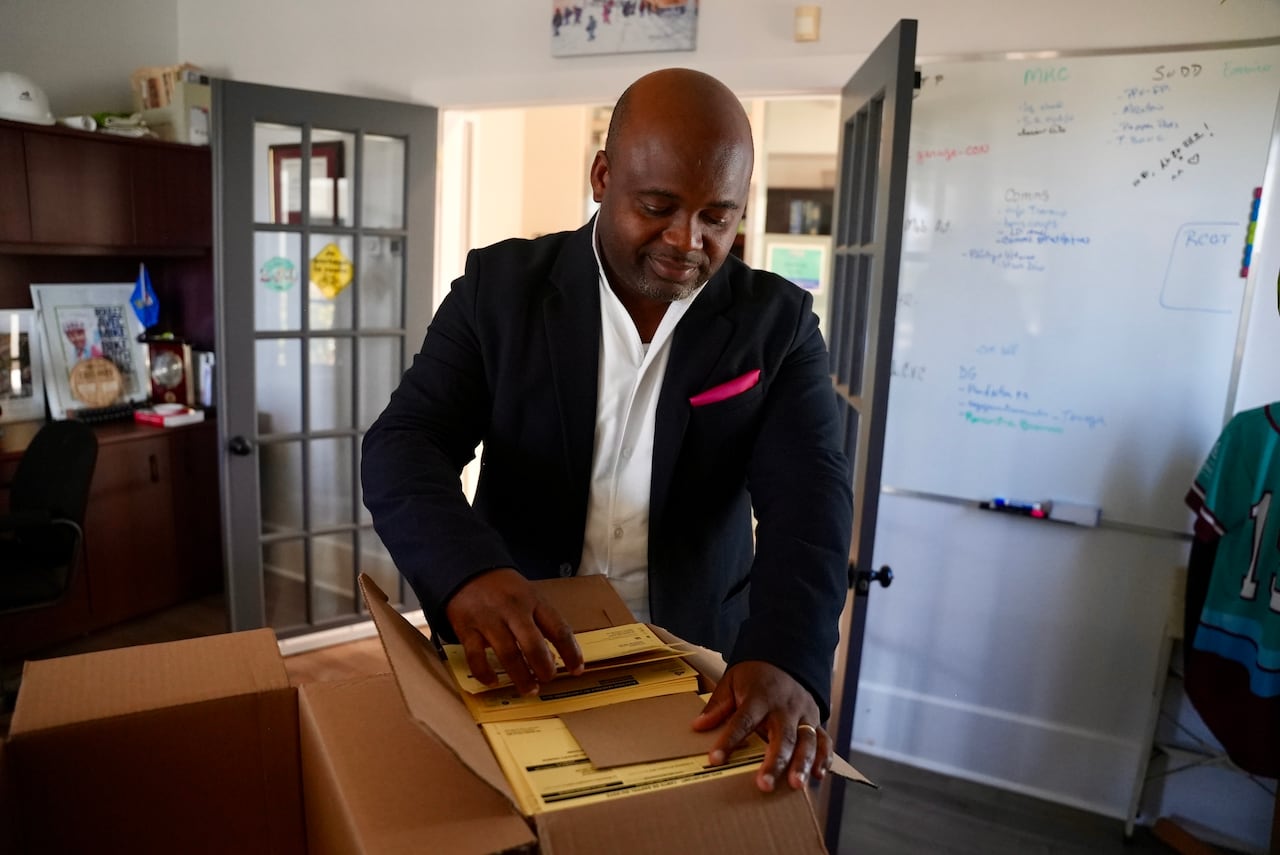
The nearby city of Gatineau paid a sheriff to hand out voter information cards at a cost of $3 to $6 per door.
Other jurisdictions in Canada were also stuck solving problems over how to get special ballots delivered to voters and mailed in time for election days.
Special ballots, often called mail-in ballots, allow someone to cast their vote outside of a regular polling place, usually by receiving and returning it by mail.
Rural and remote areas affected
For the upcoming territorial elections in Yukon and Nunavut, full logistical plans were put in place with ground and air transportation to ensure ballots arrived.
Special ballots play an important role in rural and remote areas. In Yukon, for example, 17 per cent of voters used this option during the last territorial election.
“We have a philosophy and approach here that everything is ‘calculatable,'” said Max Harvey, election director for Elections Yukon.
“It all comes down to doing what we have to do so voters can have the right to vote.”
Yukon elections too loosened the rules for in-person voting on Election Day on Nov. 3, including creating a “vote anywhere” policy so people can show up at any polling place in their precinct.
“Obviously we want to make sure we maintain integrity, access and voter services. So we’re very focused on that,” Harvey said.
Albertans will also vote in municipal elections on October 20. Edmonton and Calgary opted to mail their ballots and asked voters to return them in person or pay out of pocket to have your ballot returned by mail.
Some municipalities, like Edmonton, gave up trying to send out voter information cards altogether and instead told residents to check their surveys. online information.
Nunavut Elections and Yukon Elections also made the registry searchable on their websites; many Quebec municipalities, including Montreal, Quebec City and Gatineau, also followed suit.
Voter cards are key to participation, says an expert
While voter registration cards are not essential for casting a vote, they do play a vital role in elections, according to Holly Ann Garnett of the Election Integrity Project, which researches electoral processes around the world.
“Some research has suggested that the best way, after personal contact, to get someone mobilized to go to the polls is through this direct mail information,” Garnett said.
“So while we might say that an election information card, something mailed to your address will be a little antiquated, in fact it’s the way Canadians prefer to get their election information,” he said.
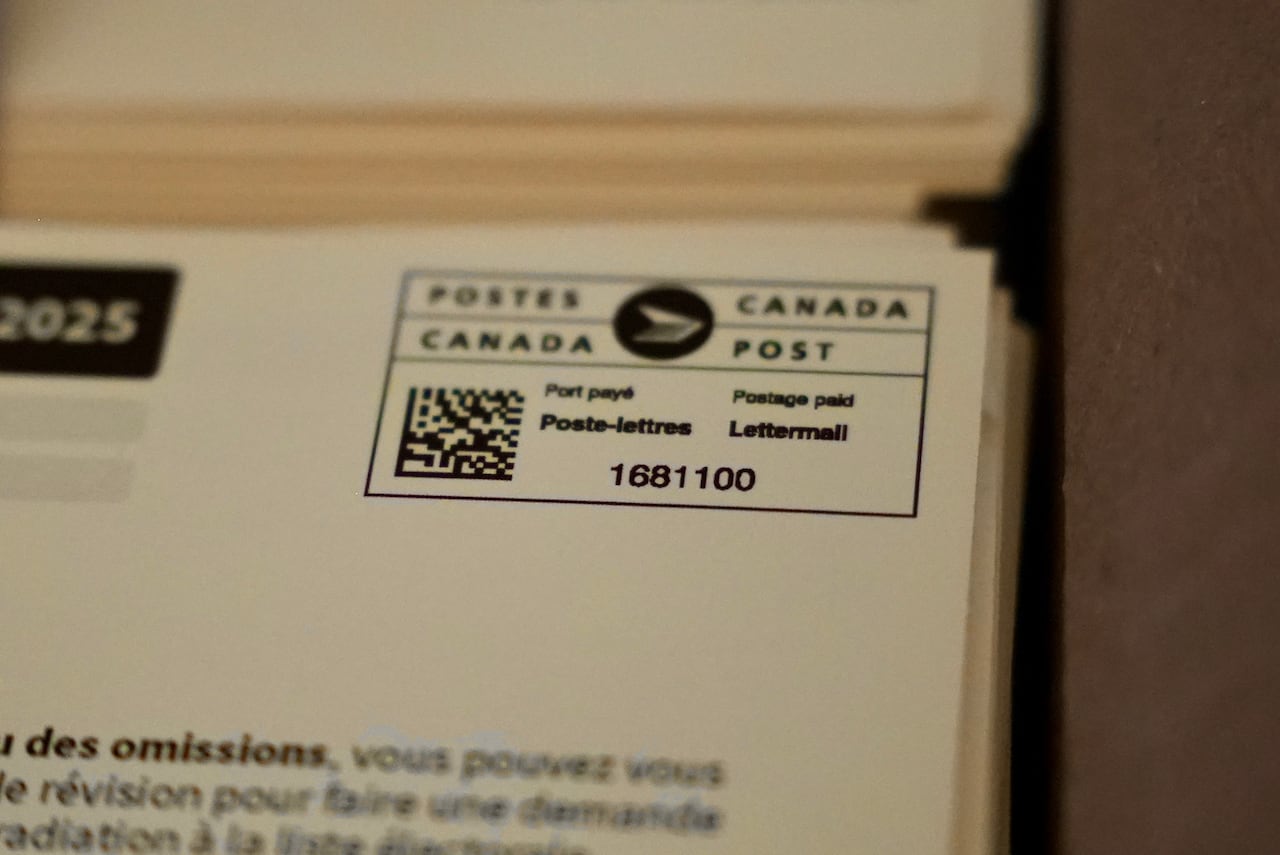
Registration cards are especially important in provincial, territorial and municipal elections, Garnett said, because voters may not know an election is underway.
Additionally, the rules for voting, such as where to cast your vote and what to bring with you, may vary by jurisdiction. Voter cards help clarify all that.
“It can really complicate the act of voting if you don’t have that information at your fingertips,” he said.
“Many people might simply choose not to participate at all.”
This is concerning, Garnett said, when municipal, provincial and territorial elections already tend to have lower voter turnout. (The municipal elections in Ontario in 2022 had a 32.9 per cent turnout, for example.)
CBC News contacted both Canada Post and CUPW about the impact of the labor dispute on the election.
None directly responded to questions about providing voter information or special ballots, or whether they would consider making election materials essential in the future.
The two sides already have a long-standing agreement to continue delivering government support checks during strikes and lockouts.
Canada Post and CUPW remain locked in a labor dispute that has lasted almost a year. The crown corporation’s last contract offer to CUPW was on October 3. The union has not yet responded.




